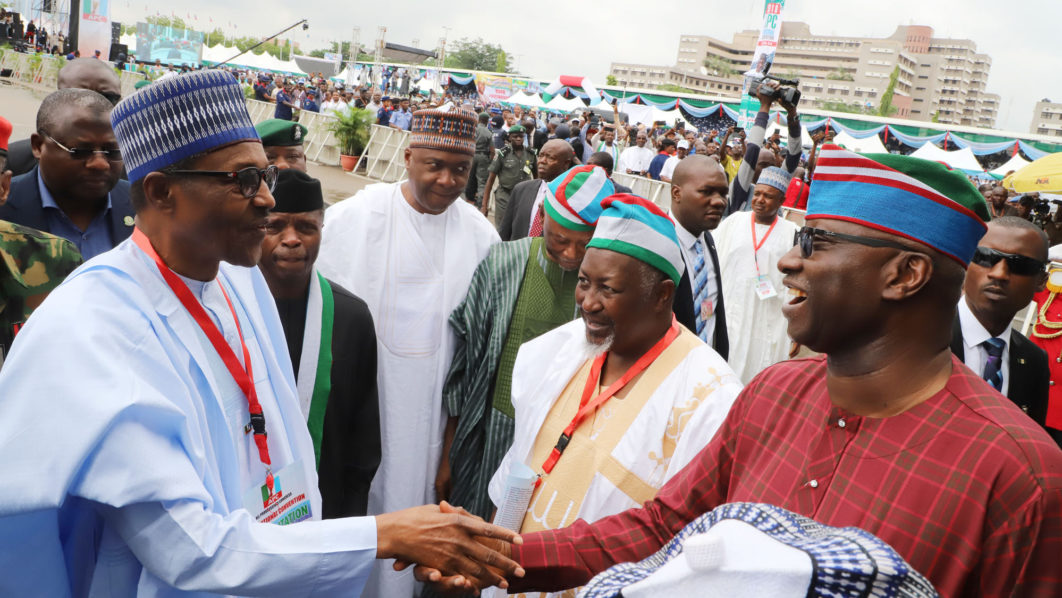
What if you have Luka Modric, who plays for Real Madrid, and Ivan Rakitic, who plays for Barcelona, marshalling the same midfield?
Can Mo Salah be Mo Salah without Firmino and Sadio Mane? There are other tournaments, of course, but the World Cup provides the grandest stage.
As we watch, our league season loyalties are momentarily forgotten. A United fan is forced to reckon with a disturbing new fondness for Kante.
A Messi fan is forced to confront their hero’s underwhelming tournament when not fed with Iniesta’ through balls.
With national team football, the deck shuffles and our loyalties shift.
The players may now be on different sides, but we get a rare insight into what it is like for our loyalties to be elsewhere and understand that the disappointment at near-misses and ecstatic celebration hit us all in the same way.
If you’re in Nigeria, we now see a different kind of shuffling of the decks – in politics.
Saraki ported to PDP before Akpabio moved to APC, and that is just naming two seismic examples.
The musical chairs of defection will continue for a while yet while power brokers make their calculation of what would suit their short-term ambitions best.
We react in similar ways as when players move during a league transfer window; we simply follow the player when he moves, watch his progress in his new team.
However, if football can organize itself in ways that shocks us out of our typical loyalties, why can’t politics?
With all that is happening in our politics, you will be forgiven for forgetting that the stakes are quite high.
Nigeria is not a country without problems: for all the noise attributed to it, our agriculture is still beset with challenges where many farmers cannot yet access the financial and technical support to improve their productivity and achieve the government’s dream of self-sufficiency; we have a humanitarian crisis in conflict-affected states in the northeast where displaced persons live in the most grim of conditions; we have bans of importation of items where our government is not always providing the conditions for improved local production; we have drug problems; a healthcare crisis; an education crisis; we have communal violence in places that get the headlines, and in places that get less attention.
All politics is local, and many of the challenges Nigeria faces are as much local and state-level as they are national ones.
And yet, our politics renders us more rocking chair than vehicle; a lot of motion, but no movement.
The Nigerian version of Nero is the politician swapping jerseys while the country burns.
There are many who will contend that what Nigeria needs to do is give up on these two main parties and go for a third party.
After all, if your club never makes it out of the first round of a tournament, you simply find another to root for.
However, it is not quite that simple. Rooting for a non-major party candidate is a strong political statement, but it works on the assumption that simply having one good egg at executive level is all that is needed.
Nothing that we know about Nigeria, however, suggests that is true.
What if only major parties win the legislature and then decide not to work with the Executive?
Given that our two parties are essentially one and the same, is it too far-fetched to wonder if they can both collude to make a third-way president ineffective? We have no real way of knowing.
A candidate with good ideas is truly not enough, even if having ideas in the first place is a good place to start.
There are no good answers, but it is clear that where 2015 was a hope-filled election on the part of the electorate, 2019 will be a more cynical one. The use of security forces to intimidate lawmakers has now happened in consecutive election cycles.
We can hold the promise of a less-thieving government against the recent report from the Office of the Auditor-General that has shown us that our government is no more accountable than the one most of us voted out.
Insecurity many of us thought will be a thing of the past is very much a thing of the present and possibly our foreseeable future.
In many important ways, actions taken in the mistiness of hope are perhaps not the best time to take a measure of a people.
It is when no such hope exists, when the match has largely been played but with fifteen minutes still to go, and your team is down by two goals, and you are teed up for a free kick with a strong wall but just a glimmer of a sight on goal.
[ad unit=2]






